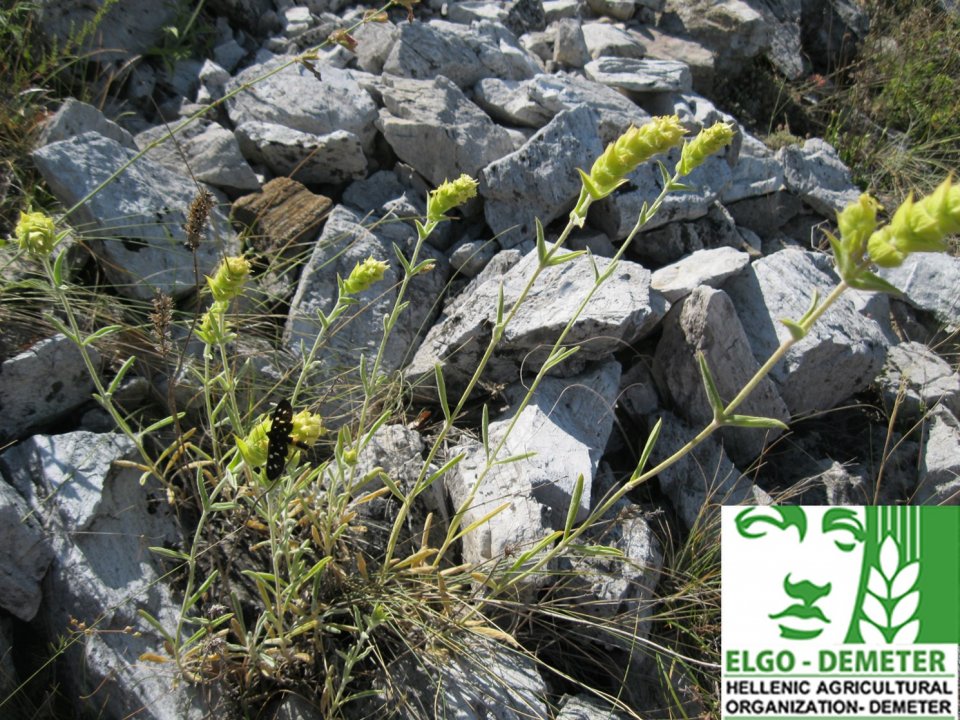
Sideritis sp. are among the most overhavested in Greece and many wild populations are threatened. It is used for the preparation of herbal tea, known as Mountain tea which is widely consumed due to its properties known from folk medicine. The traditional use of 4 Sideritis sp. has been adopted by HMPC in a herbal monograph (1) and several studies have been reported on its pharmacological properties. The overharvesting has put a pressure onto its populations. The MOUNTEA-CONSE project (2) aimed at the development of conservation and sustainable exploitation activities for Sideritis populations.
The development of conservation strategies are crucial for the conservation and sustainable exploitation of overharvested and endangered Medicinal Aromatic Plants. By introducing the most demanded species into cultivation, the pressure on natural populations is eliminating and the efficient supply of raw material is assured. However, this process is quite demanding due to the unique features and requirements of each species. Optimization of agricultural practices and selection of biological efficient genotypes are among the major research objectives for the successful domestication of MAPs.
S. scardica and S. raeseri ssp. raeseri and their natural growing areas in Greece and North Macedonia were defined and studied. A protocol illustrating the rules for the sustainable wild collection of plants has been developed. Seeds were deposited to the Greek Gene Bank, and two accessions have been planted in ex situ field collection. Small scale plantations were established (Photo 2). Certain biological and ecological features and requirements were assessed. Plant traits, associated to the commercial value of Sideritis, were estimated. Plants with desired features led to promising genotypes and starting material for further breeding research. A Protocol for the Sustainable exploitation of MAPs through cultivation was developed.
Basic information on plants biology, ecology and peculiarities in cultivation (feasible propagation methods, soil, environment, etc) should be thoroughly studied, before introducing MAPs into cultivation. Additionally, appropriate research is needed concerning the selection of superior genotypes in terms of phenotypic and productive traits and desired bioactive compounds. The certified propagation material and the implementation of Good Agricultural Practices will enhance the added value of Sideritis raw material and the standardization of the productive chain.
The results of the project may contribute towards the sustainable exploitation of other indigenous MAPs. The project activities have been reported to the local communities, public authorities and resource managers in the studied areas of the project. The project results and activities promoted the commercial cultivation of Mountain Tea in Greece, providing an additional income for the local communities.
The exchange of knowledge and know how on Sideritis conservation, can also promote similar research conservation actions and ethnopharmacobotanical surveys on other traditionally used MAPs, aiming also to their sustainable exploitation. The results of the project may contribute towards the sustainable exploitation of other indigenous MAPs
Dr. Paschalina Chatzopoulou, chatzopoulou@ipgrb.gr, https://ipgrb.gr/
Further information
Paschalina Chatzopoulou
Sideritis experimental lines at IPGRB
